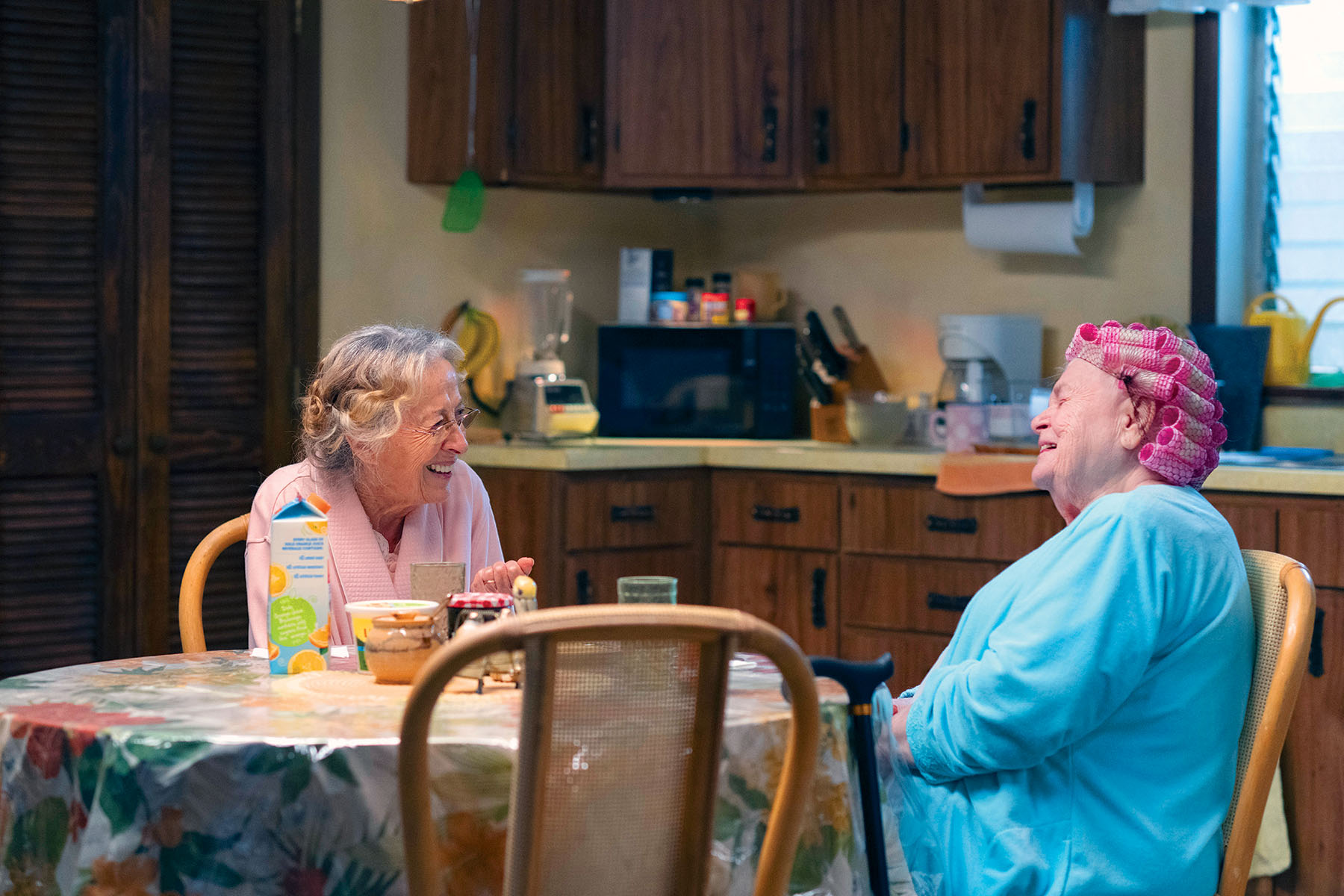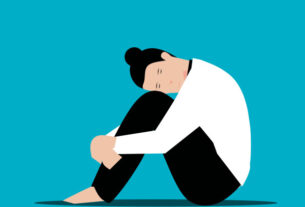Actress Rita Zohar didn’t have to search far for her role as a Holocaust survivor in Scarlett Johansson’s directorial debut, “Eleanor the Great.” She is a Holocaust survivor herself. Though Zohar did not experience the horrors of the war directly — she was only four-and-a-half months old when her family was liberated from the concentration camp in Balta, Romania (then part of the Soviet Union) — her connection to the story runs deep. She delivers a phenomenal performance, bringing both authenticity and emotional depth to her character.
“My memories are preverbal, so getting this role of Bessie where you have a Holocaust survivor who uses words to express and share her story, it was a gift for me. It’s unbelievable that this would happen. Her story has nothing to do with my story, but yet, it’s our story,” Zohar said.
The film, written by Tory Kamen, tells the story of Eleanor (beautifully played by June Squibb), who lives in Florida with her best friend of 70 years, Bessie. The two women have been sharing a home since the deaths of their husbands more than a decade earlier. Their witty banter feels relaxed and natural, but beneath the humor lie deep emotional wounds for Bessie, a Holocaust survivor whose traumatic memories from Poland and the concentration camps continue to haunt her. Their early-morning conversations reveal both the strength of their bond and the enduring scars of history.
After Bessie’s death, Eleanor moves to New York to live with her daughter Lisa (Jessica Hecht). She begins visiting the Manhattan Jewish Community Center where, one afternoon, she accidentally stumbles into a support group for Holocaust survivors. Not wanting to reveal the truth, Eleanor chooses instead to tell the group Bessie’s story as if it were her own. What begins as a seemingly harmless moment, soon to be forgotten, takes an unexpected turn when Nina (Erin Kellyman) asks to interview her for a journalism class. As Eleanor and Nina grow closer, Eleanor finds herself entangled in a web of lies.

“I fell in love with the role of Bessie,” Zohar told The Journal. “She is my mother, my grandmother and all my other relatives who passed away.”
Zohar, 81, made Aliyah to Israel with her mother and grandmother in the 1950s — essentially all that remained of her family. She began acting at the age of four and quickly made a name for herself in both television and film. In the 1980s, she moved to the United States, appearing in productions such as “Amadeus,” “Unspoken,” and the television series “thirtysomething,” “ER” and “7th Heaven.”
Though she has lived in Los Angeles for many years with her husband and three children, Zohar has continued returning to Israel whenever she was offered a role. In 1990, she won the Israeli Film Academy Award for Best Actress for her performance in “Laura Adler’s Last Love Affair.”
Despite her long career, Zohar still had to audition for the role of Bessie, but she said she didn’t mind.
“Everybody hates auditioning, but I love it. I think it’s an adventure, it’s being brave, it’s going into the arena and taking risks,” she said. “In the past, you’d sit in front of a casting director, the director and a little camera, you’d read with someone, and then they said ‘We’ll let you know.’ Nowadays, you can be at home in your pajamas and just cry your heart out, which is so much easier.”
Ageism in Hollywood and the difficulty of actresses over a certain age to get leading roles have been hot topics in Hollywood for years. Zohar and 95-year-old Squibb, however, prove that you can still carry a movie when you are over 80.
“When you get to my age, suddenly you’re in demand. Maybe it’s because there aren’t that many actresses my age who aren’t afraid to show it,” she said. “When my hair turned gray I was delighted. I thought, ‘Oh my God, I look like my grandmother.’ It’s all about your attitude.”
Zohar considers herself fortunate for the caliber of directors she has worked with throughout her career. “I had the opportunity to work with Milos Forman, Sidney Lumet – amazing people – and now Scarlett Johansson. She’s wonderful,” she said. “She is a consummate actress and director. She really knows both sides of the camera. I felt so safe to do anything, knowing I was in good hands. She was very kind, very understanding, and she knew exactly what she wanted from every scene.”
Succeeding in the industry has never been easy, she said. Not in the 20s, not when she first arrived in Hollywood and certainly not today. “Somebody once said it’s 95% luck and 5% talent — and there’s some truth in that,” she said. “But today, for young people, being a celebrity isn’t just about acting. It’s about being famous — being on television, at festivals, dressing up. It’s almost another profession on top of the profession of acting.”
She credits her path to letting go of rigid plans and embracing the unexpected. “You make all these plans, think you’re smart, but at some point you realize it doesn’t work that way. If you surrender, allow life to play out, better things would come to you, more than you ever imagined. I believe somebody up there is pulling the strings.”
Last month, more than 1,000 filmmakers — including prominent actors and directors such as Javier Bardem and Mark Ruffalo —signed an open letter pledging to boycott Israeli film institutions and production companies, in response to Israel’s military campaign and the humanitarian crisis in Gaza.
Asked about the boycott, Zohar recalled a saying from her grandmother: “She used to say ‘chandelei boundarei’. I don’t even know what it means, but for her it meant that when it comes to politics, it’s complicated. Everybody wants to do what’s right, but what is ‘right’ in today’s world?”
Still, she emphasized the importance of countering those voices with others. “Just yesterday, a beautiful list came out — Liev Schreiber and others spoke up. It was very moving. There are people on the other side too, and we’re not going to be quiet.”
She reflected on the deep sense of empathy rooted in Jewish tradition: “When we celebrate the holidays, we talk about leaving Egypt ‘as if we were there.’ That empathy, which we learn from a very young age, stays with us. When we read the Haggadah, we say ‘as if we were there,’ and I think that because of what we, as Jews, have gone through for thousands of years, we carry that human quality — to empathize, to recognize, to embrace. What happened in Rwanda happened to me, what happened anywhere in the world happened to me. And that is what makes us human.”
For Zohar, the power of “Eleanor the Great” lies in its ability to reach audiences of all ages, especially younger viewers who may initially dismiss a story about older women. “At first, people might say, ‘I don’t know,’ but there’s such a rich life there, and you learn so much about what it means to be alive.”
“The Jewish community should support this kind of movie — it’s important,” she said. “We have to encourage people, especially those who know little about the Holocaust, to go and see it.”




